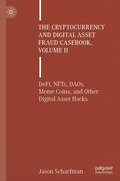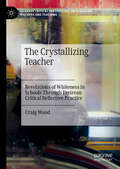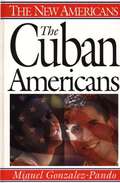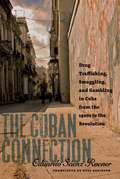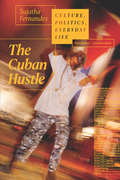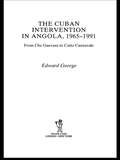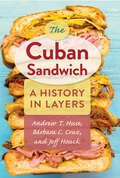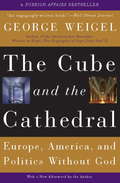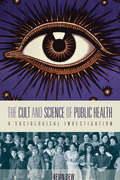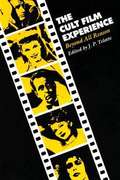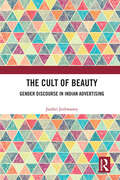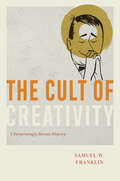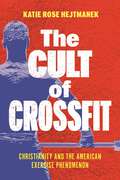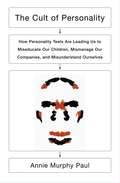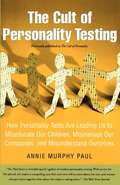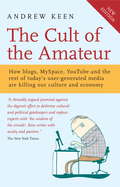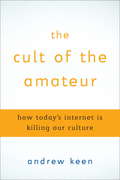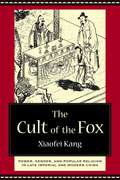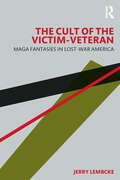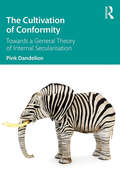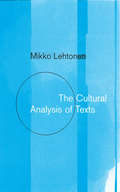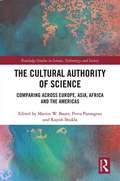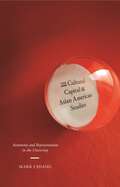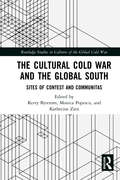- Table View
- List View
The Cryptocurrency and Digital Asset Fraud Casebook, Volume II: DeFi, NFTs, DAOs, Meme Coins, and Other Digital Asset Hacks
by Jason ScharfmanCryptocurrencies and digital assets have continued to gain widespread acceptance from both retail and institutional investors. As part of this continued growth, there has been an unfortunate series of ongoing and increasingly sophisticated frauds, Ponzi schemes, and hacks that have cost investors billions of dollars. Since the publication of the original Cryptocurrency and Digital Asset Fraud Casebook, conservative estimates indicate that there have been thousands of new digital asset fraud cases that have contributed to billions in broadening losses in space. Beyond the digital asset space, cryptocurrency-related scams also continue to present increasingly meaningful threats to traditional finance institutions, the global economy, and national security, as well. These new challenges, combined with the ongoing evolving regulatory environment for digital assets, create an environment where there is a continued need for the up-to-date information and analysis of real-world case studies. It includes an up-to-date analysis of recent case studies in cryptocurrency and digital asset fraud alongside an analysis of recent decentralized finance (DeFi) hacks, smart contract attacks, and rug pulls. This book reviews the impact of digital asset bankruptcies, the FTX fraud, and the industry-wide post-FTX fallout on the growth of cryptocurrency fraud. It also examines the explosive growth of cryptocurrency romance scams, pig butchering, and related organized crime money laundering efforts and includes a related exclusive case study. Offering an in-depth examination of digital asset frauds in the gaming, metaverse, and NFT spaces, it also covers Decentralized Autonomous Organization (DAO) fraud, smart contract attacks, dApp scams, crypto asset manager investment fraud, mining fraud, honeypots, meme coins, and artificial intelligence-based digital asset fraud. Leveraging the author’s experience analyzing and implementing compliance and operations best practices with a variety of cryptocurrency and digital asset projects and consulting with international regulators on blockchain and digital asset policy, this book will be of interest to those working throughout the cryptocurrency and digital asset space including Web 3.0 builders and service providers including lawyers, auditors, blockchain infrastructure, regulators, governments, retail investors, and institutional investors.
The Cryptocurrency and Digital Asset Fraud Casebook, Volume III: Exchange Hacks, Deepfakes, Social Media, and Artificial Intelligence Scams
by Jason ScharfmanCryptocurrencies and digital assets have continued to gain widespread acceptance from both retail and institutional investors. Alongside this rapid growth, the digital ecosystem remains plagued by bad actors who prey on the space. These range from state-sponsored North Korean hacker groups, Russian ransomware gangs, multinational organized criminal enterprises to lower-level Chinese gangsters and run of the mill romance scammers. These criminals indiscriminately target victims across all demographics. Furthermore, cryptocurrency-related scams continue to present increasingly significant threats to institutions and national security. Since the publication of The Cryptocurrency and Digital Asset Fraud Casebook volumes I and II, scammers have only intensified the sophistication and scope of their attacks. This evolving threat landscape, coupled with a rapidly changing regulatory environment, underscores the ongoing need for up-to-date information and analysis. The Cryptocurrency and Digital Asset Fraud Casebook, Volume III: Exchange Hacks, Deepfakes, Social Media, and Artificial Intelligence Scams is essential reading for anyone seeking the latest insights into fraudulent activity within the cryptocurrency and digital asset space.
The Crystallizing Teacher: Revelations of Whiteness in Schools Through Freirean Critical Reflective Practice (Palgrave Critical Perspectives on Schooling, Teachers and Teaching)
by Craig WoodThis book advocates for teacher professional development done differently. The author introduces a process described as ‘crystallizing conscientização’, which restores agency to teachers. Looking beyond incremental improvements in teacher micro-skills promoted by neo-managerial approaches to professional development, the book considers the wider impact of teachers’ personal, professional and political identities on their work. This critical reflective practice combines crystallization as method with Freirean principles of conscientização, asking questions that reveal the impact of whiteness in schools and the role that education performs in replicating whiteness and perpetuating injustice. The book will appeal to academics in the diverse fields of sociology of education, critical race theory, critical whiteness studies, curriculum and pedagogy and teachers’ work, as well as providers of initial teacher education programs and pre-service teachers.
The Cuban Americans
by Miguel Gonzalez-PandoThis book focuses on the waves of Cuban refugees who have come to the United States since Fidel Castro rose to power in 1959. The author explores America's shifting response to the Cuban emigres and the ways immigration policy reflects U.S.-Soviet relations. Cuban American culture, including art, journalism, and film, are explored. The text is enriched by frequent quotes from the author's interviews with political and cultural figures in the Cuban American community.
The Cuban Connection
by Russ Davidson Eduardo Sáenz RovnerA comprehensive history of crime and corruption in Cuba, The Cuban Connection challenges the common view that widespread poverty and geographic proximity to the United States were the prime reasons for soaring rates of drug trafficking, smuggling, gambling, and prostitution in the tumultuous decades preceding the Cuban revolution. Eduardo Saenz Rovner argues that Cuba's historically well-established integration into international migration, commerce, and transportation networks combined with political instability and rampant official corruption to help lay the foundation for the development of organized crime structures powerful enough to affect Cuba's domestic and foreign politics and its very identity as a nation.Saenz traces the routes taken around the world by traffickers and smugglers. After Cuba, the most important player in this story is the United States. The involvement of gangsters and corrupt U.S. officials and businessmen enabled prohibited substances to reach a strong market in the United States, from rum running during Prohibition to increased demand for narcotics during the Cold War. Originally published in Colombia in 2005, this first English-language edition has been revised and updated by the author.
The Cuban Hustle: Culture, Politics, Everyday Life
by Sujatha FernandesIn The Cuban Hustle, Sujatha Fernandes explores the multitudinous ways artists, activists, and ordinary Cubans have hustled to survive and express themselves in the aftermath of the Soviet Union’s collapse. Whether circulating information on flash drives as a substitute for the internet or building homemade antennas to listen to Miami’s hip hop radio stations, Cubans improvise alternative strategies and workarounds to contend with ongoing isolation. Throughout these essays, Fernandes examines the emergence of dynamic youth cultures and social movements as Cuba grappled with economic collapse, new digital technologies, the normalization of diplomatic ties with the United States during the Obama administration, and the regression of US-Cuban relations in the Trump era. From reflections on feminism, new Cuban cinema, and public art to urban slums, the Afro-Cuban movement, and rumba and hip hop, Fernandes reveals Cuba to be a world of vibrant cultures grounded in an ethos of invention and everyday hustle.
The Cuban Intervention in Angola, 1965-1991: From Che Guevara to Cuito Cuanavale (Cass Military Studies)
by Edward GeorgeA new examination of why Cuba, a Caribbean country, sent half a million of its citizens to fight in Angola in Africa, and how a short-term intervention escalated into a lengthy war of intervention. It clearly details how in January 1965 Cuba formed an alliance with the Angolan MPLA which evolved into the flagship of its global 'internationalist' mission, spawning the military intervention of November 1975 culminating in Cuba's spurious 'victory' at Cuito Cuanavale and Cuba's fifteen-year occupation of Angola. Drawing on interviews with leading protagonists, first-hand accounts and archive material from Cuba, Angola and South Africa, this new book dispels the myths of the Cuban intervention, revealing that Havana's decision to intervene was not so much an heroic gesture of solidarity, but rather a last-ditch gamble to avert disaster. By examining Cuba's role in the Angolan War in a global context, this book demonstrates how the interaction between the many players in Angola shaped and affected Cuba's intervention as it headed towards its controversial conclusion.
The Cuban Sandwich: A History in Layers
by Bárbara C. Cruz Andrew T. Huse Jeff HouckA delicious, multilayered tale of a legendary sandwich Florida Book Awards, Gold Medal for CookingCreative Loafing Tampa Bay Best of the Bay Awards, “Best Approach to Pressing Matters” How did the Cuban sandwich become a symbol for a displaced people, win the hearts and bellies of America, and claim a spot on menus around the world? The odyssey of the Cubano begins with its hazy origins in the midnight cafés of Havana, from where it evolved into a dainty high-class hors d’oeuvre and eventually became a hearty street snack devoured by cigar factory workers. In The Cuban Sandwich, three devoted fans—Andrew Huse, Bárbara Cruz, and Jeff Houck—sort through improbable vintage recipes, sift gossip from Florida old-timers, and wade into the fearsome Tampa vs. Miami sandwich debate (is adding salami necessary or heresy?) to reveal the social history behind how this delicacy became a lunch-counter staple in the US and beyond.The authors also interview artisans who’ve perfected the high arts of creating and combining expertly baked Cuban bread, sweet ham, savory roast pork, perfectly melted Swiss cheese, and tangy, crunchy pickles. Tips and expert insight for making Cuban sandwiches at home will have readers savoring the history behind each perfect bite. Publication of this work is made possible by a Sustaining the Humanities through the American Rescue Plan grant from the National Endowment for the Humanities.
The Cube and the Cathedral: Europe, America, and Politics Without God
by George WeigelWhy do Europeans and Americans see the world so differently? Why do Europeans and Americans have such different understandings of democracy in the twenty-first century? Why is Europe dying, demographically? In The Cube and the Cathedral, George Weigel offers a penetrating critique of "Europe's problem" and draws out its lessons for the rest of the democratic world. Contrasting the civilization that produced the starkly modernist "cube" of the Great Arch of La Defense in Paris with the civilization that produced the "cathedral," Notre-Dame, Weigel argues that Europe's embrace of a narrow and cramped secularism has led to a crisis of civilizational morale that is eroding Europe's soul and failing to create the European future. Even as thoughtful Europeans and Americans wrestle with these grave issues, many European political leaders continue to insist-most recently, during the debate over a new European constitution-that only a public square shorn of religiously informed moral argument is safe for human rights and democracy. The most profound question raised by The Cube and the Cathedral is whether there can be any true "politics"-any true deliberation about the common good, and any robust defense of freedom-without God. George Weigel makes a powerful case that the answer is "No"-because, in the final analysis, societies and cultures can only be as great as their spiritual aspirations.
The Cult And Science Of Public Health
by Kevin DewIn contemporary manifestations of public health rituals and events, people are being increasingly united around what they hold in common--their material being and humanity. As a cult of humanity, public health provides a moral force in society that replaces 'traditional' religions in times of great diversity or heterogeneity of peoples, activities and desires. This is in contrast to public health's foundation in science, particularly the science of epidemiology. The rigid rules of 'scientific evidence' used to determine the cause of illness and disease can work against the most vulnerable in society by putting sectors of the population, such as underrepresented workers, at a disadvantage. This study focuses on this tension between traditional science and the changing vision articulated within public health (and across many disciplines) that calls for a collective response to uncontrolled capitalism and unremitting globalization, and to the way in which health inequalities and their association with social inequalities provides a political rhetoric that calls for a new redistributive social programme. Drawing on decades of research, the author argues that public health is both a cult and a science of contemporary society.
The Cult Film Experience: Beyond All Reason
by J. P. Telotte"Play it again, Sam" is the motto of cult film enthusiasts, who will watch their favorite movie over and over, "beyond all reason. " What is the appeal of cult movies? Why do fans turn up in droves at midnight movies or sit through the same three-hanky classics from Hollywood's golden era? These are some of the questions J. P. Telotte and twelve other noted film scholars consider in this groundbreaking study of the cult film. The book identifies two basic types of cult films-older Hollywood movies, such as Casablanca, that have developed a cult following and "midnight movies," most notably The Rocky Horror Picture Show. Telotte, Bruce Kawin, and Timothy Corrigan offer thought-provoking discussions about why these two types of movies become cult films, the sort of audience they attract, and the needs they fulfill for that audience. Subsequent essays employ a variety of cultural, feminist, ideological, and poststructural strategies for exploring these films. In a section on the classical cult film, the movie Casablanca receives extensive treatment. An essay by T. J. Ross considers Beat the Devil as a send-up of cult films, while another essay by Wade Jennings analyzes the cult star phenomenon as personified in Judy Garland. "Midnight movie madness" is explored in essays on The Rocky Horror Picture Show, movie satires of the 1950s, science fiction double features, and horror thrillers. Illustrated with scenes from favorite movies and written for both fans and scholars, The Cult Film Experience will appeal to a wider audience than the "usual suspects. "Texas Film and Media Studies SeriesThomas Schatz, Editor
The Cult of Beauty: Gender Discourse in Indian Advertising
by Jaishri JethwaneyThis book deconstructs the quintessential Indian woman that the advertising industry portrays across the spectrum by looking at Indian advertisements across multiple brands with a gender lens based on societal and sociological perspectives. It delves into various critical issues like the differences between culture-defined gender roles/expectations and women’s portrayal in the ad narrative, and which product category has consistently portrayed women as sex objects.Drawing insights from a seminal research study and Erving Goffman’s classic book ‘Gender Advertisements’, it traces the journey of three decades, beginning the 1990s – the era of liberalization in India, to map trends and patterns in Indian advertising and presents the perspectives of the creative teams and top managements across Indian and global advertising agencies. It discusses the application of a Gender Sensitivity Barometer (GSB) which the creative teams can use to find out how sensitive or insensitive the ad has been based on pre-determined indicators suggested by the GSB.This book will be useful to students, researchers and faculty working in the field of management, advertising, mass communication, psychology, gender studies and sociology. It will also be an indispensable companion to professionals from the field of advertising and related areas.
The Cult of Creativity: A Surprisingly Recent History
by Samuel W. FranklinA history of how, in the mid-twentieth century, we came to believe in the concept of creativity. Named a best book of 2023 by the New Yorker and a notable book of 2023 by Behavioral Scientist. Creativity is one of American society’s signature values, but the idea that there is such a thing as “creativity”—and that it can be cultivated—is surprisingly recent, entering our everyday speech in the 1950s. As Samuel W. Franklin reveals, postwar Americans created creativity, through campaigns to define and harness the power of the individual to meet the demands of American capitalism and life under the Cold War. Creativity was championed by a cluster of professionals—psychologists, engineers, and advertising people—as a cure for the conformity and alienation they feared was stifling American ingenuity. It was touted as a force of individualism and the human spirit, a new middle-class aspiration that suited the needs of corporate America and the spirit of anticommunism. Amid increasingly rigid systems, creativity took on an air of romance; it was a more democratic quality than genius, but more rarified than mere intelligence. The term eluded clear definition, allowing all sorts of people and institutions to claim it as a solution to their problems, from corporate dullness to urban decline. Today, when creativity is constantly sought after, quantified, and maximized, Franklin’s eye-opening history of the concept helps us to see what it really is, and whom it really serves.
The Cult of CrossFit: Christianity and the American Exercise Phenomenon
by Katie Rose HejtmanekReveals the Christian foundations of CrossFitCrossFit in the United States has become increasingly popular, around which a fascinating culture has developed which shapes everyday life for the people devoted to it. CrossFit claims to be many things: a business, a brand, a tremendously difficult fitness regimen, a community, a way to gain salvation, and a method to survive the apocalypse. In The Cult of CrossFit, Katie Rose Hejtmanek examines how this exercise program is shaped by American Christian values and practices, connecting American religious ideologies to secular institutions in contemporary American culture.Drawing upon years of immersing herself in CrossFit gyms in the United States and across six continents, this book illustrates how US CrossFit operates using distinctly American codes, ranging from its intensity and patriarchal militarism to its emphasis on (white) salvation and the adoration of the hero and vigilante. Despite presenting itself as a secular space, Hejtmanek argues that CrossFit is both heavily influenced by and deeply intertwined with American Christian values. She makes the case that the Christianity that shapes CrossFit is the Christianity that shapes much of America, usually in ways we do not even notice. Offering a new cross-cultural perspective for understanding a popular workout, The Cult of CrossFit provides a window into a particularly American rendition of a Christian plotline, lived out one workout at a time.
The Cult of Personality
by Annie Murphy PaulMillions of Americans take personality tests each year: to get a job, to pursue an education, to settle a legal dispute, to better understand themselves and others. But where did these tests come from, and what are they saying about us? In The Cult of Personality, award-winning psychology writer Annie Murphy Paul reveals the surprising and disturbing story behind the tests that claim to capture human nature. Combining cutting-edge research, engaging reporting, and absorbing history, Paul uncovers the way these allegedly neutral instruments are in fact shaped by the agendas of industry and government. She documents the dangers of their intrusive questions, biased assumptions, and limiting labels. And she exposes the flawed theories and faulty methods that render their results unreliable and invalid. Personality tests, she contends, produce descriptions of people that are nothing like human beings as they actually are: complicated, contradictory, changeable across time and place. The widespread use of these tests has deeply troubling consequences. Students are being consigned to narrow categories even as they're still growing and developing. Workers are having their privacy invaded and their rights trampled. Companies are wasting hundreds of millions of dollars, only to make ill-informed decisions about hiring and promotion. Our judicial system is being undermined by inaccurate evidence. Perhaps most distressing, we are all increasingly implicated in a "cult of personality" that celebrates the superficial over the substantive, the static over the dynamic, the standard and average over the distinctive and unique. Compelling and insightful, this book is an eye-opening account of a collision among the needs of business and bureaucracy, the imperatives of a lucrative and largely unregulated testing industry, and the eternal human desire to make sense of ourselves and each other.
The Cult of Personality Testing
by Annie Murphy PaulThis book tells the surprising and disturbing story of the tests that claim to capture human nature. It goes behind the scenes to discover how personality tests are used in America's companies, its courts, its schools, and in organizations from churches to community centers to dating services. It exposes the serious flaws of personality tests, explaining why their results are often invalid, unreliable, and unfair.
The Cult of the Amateur: How blogs, MySpace, YouTube and the rest of today's user-generated media are killing our culture and economy
by Andrew KeenA new, updated edition, with a new foreword of Andrew Keen's witty and provocative polemic against the rise of user-generated content and the anything goes standards of much online publishing, which set the blogosphere and media alight on publication. Dubbed the 'anti-christ' of Silicon Valley and a dot-com apostate Andrew Keen is the leading contemporary critic of the Internet. and The Cult of the Amateur is a scathing attack on the mad utopians of Web 2.0 and the wisdom of the crowd. Keen argues that much of the content filling up YouTube, MySpace, and blogs is just an endless digital forest of mediocrity which, unconstrained by professional standards or editorial filters, can alter public debate and manipulate public opinion.
The Cult of the Amateur: How blogs, MySpace, YouTube, and the rest of today's user-generated media are destroying our economy, our culture, and our values
by Andrew KeenAmateur hour has arrived, and the audience is running the show. In a hard-hitting and provocative polemic, Silicon Valley insider and pundit Andrew Keen exposes the grave consequences of today's new participatory Web 2.0 and reveals how it threatens our values, economy, and ultimately the very innovation and creativity that forms the fabric of American achievement. Our most valued cultural institutions, Keen warns--our professional newspapers, magazines, music, and movies--are being overtaken by an avalanche of amateur, user-generated free content. Advertising revenue is being siphoned off by free classified ads on sites like Craigslist; television networks are under attack from free user-generated programming on YouTube and the like; file-sharing and digital piracy have devastated the multibillion-dollar music business and threaten to undermine our movie industry. Worse, Keen claims, our "cut-and-paste" online culture--in which intellectual property is freely swapped, downloaded, remashed, and aggregated--threatens over 200 years of copyright protection and intellectual property rights, robbing artists, authors, journalists, musicians, editors, and producers of the fruits of their creative labors. In today's self-broadcasting culture, where amateurism is celebrated and anyone with an opinion, however ill-informed, can publish a blog, post a video on YouTube, or change an entry on Wikipedia, the distinction between trained expert and uninformed amateur becomes dangerously blurred. When anonymous bloggers and videographers, unconstrained by professional standards or editorial filters, can alter the public debate and manipulate public opinion, truth becomes a commodity to be bought, sold, packaged, and reinvented. The very anonymity that the Web 2.0 offers calls into question the reliability of the information we receive and creates an environment in which sexual predators and identity thieves can roam free. While no Luddite--Keen pioneered several Internet startups himself--he urges us to consider the consequences of blindly supporting a culture that endorses plagiarism and piracy and that fundamentally weakens traditional media and creative institutions. Offering concrete solutions on how we can reign in the free-wheeling, narcissistic atmosphere that pervades the Web, THE CULT OF THE AMATEUR is a wake-up call to each and every one of us.
The Cult of the Fox: Power, Gender, and Popular Religion in Late Imperial and Modern China
by Xiaofei KangThe shamanistic fox cult has flourished in China from the late 16th century up to the present. It was and is an "illicit" cult in late Imperial and modern China, yet it flourished among a wide range of social classes. The fox is a marginal figure for the Chinese in a number of senses: it cannot be domesticated, yet it preys on domestic animals; it can appear in the guise of a man or a woman; it can act as ghost or ancestor; it can ensure fertility or provide moral guidance. The fox cult bypassed state and elite control and flourished in private and at a local level. Kang looks at the fox cult as a vibrant Chinese popular religion, where issues of power and gender were challenged and reshaped. It is the first book to consider the cult (Robert Hymes calls it "the work on fox spirits in China"), and it does so through informal historical writings, popular literature, and ethnography. Finally, the book discusses the role of the cult in the study of Chinese religion and how it compares to fox spirits in other cultures. The book makes an important contribution to the study of Chinese religion, history, and culture. It can be used in courses on popular religion, East Asian studies, ethnography of China, and related areas.
The Cult of the Victim-Veteran: MAGA Fantasies in Lost-war America
by Jerry LembckeThe Cult of the Victim-Veteran explores the pool of American post- Vietnam War angst that rightists began plying in the 1980s. Ronald Reagan’s 1984 proclamation of a new "Morning in America" encoded the war as the moment of the nation’s fall from grace; it was the meme plagiarized by Donald Trump for his "Make America Great Again" (MAGA) slogan. The national funk tapped for right- wing revanchism was psychologized when George H.W. Bush appropriated post- Vietnam syndrome, the diagnostic forerunner to post- traumatic stress disorder (PTSD), to memorialize the military accomplishments in the Persian Gulf War of 1990–1991—we had "kicked the Vietnam Syndrome." America was a victim- nation, its trauma emblemized by PTSD-stricken veterans whose war mission had been lost on the home front, cast aside, even spat on, upon return home. In this book we see the long historical threads woven for MAGA: the twining of traditional and modern ways of knowing that imbues war trauma with political and cultural properties that complicate its diagnostic use; the post- World War I disclosure that many shellshock patients had never been exposed to exploding shells, and the use of wounded- veteran imagery to fan the flames of German fascism; the cultural necessity of reimaging antiwar Vietnam veterans as psychiatric casualties that calls forth a new diagnostic category, PTSD; the derivatizing of PTSD for traumatic brain injury, Agent Orange, and moral injury; and the victim- veteran figure as metaphor for a wounded America, for which MAGA is the remedy.
The Cultivation of Conformity: Towards a General Theory of Internal Secularisation
by Pink DandelionThis book explores the inter-relationship between religious groups and wider society and examines the way religious groups change in relation to societal norms, potentially to the point of undergoing processes of ‘internal secularisation’ within secular and secularist cultures. Received sociological wisdom suggests that over time religious groups moderate their claims. This comes with the potential loss of new adherents, for theorists of secularisation suggest unique or universal, rather than moderate, truth claims appear attractive to would-be recruits. At the same time, religious groups need to appear equivalent, in terms of harmlessness, to state-sanctioned religious expression in order to secure rights. Thus, religious organisations face a perpetual conundrum. Using British Quakers as a case study as they moved from a counter-cultural group to an accepted and accepting part of twentieth- and twenty-first-century society, the author builds on models of religion and non-religion in terms of flows and explores the consequences of religious assimilation when the process of constructing both distinctive appeal and ‘harmlessness’ in pursuit of rights is played out in a secular culture. A major contribution to the sociology of religion, The Cultivation of Conformity presents a new theory of internal secularisation as the ultimate stage of the cultivation of conformity, and a model of the way sects and society inter-relate.
The Cultural Analysis of Texts
by Mikko LehtonenDrawing upon a range of perspectives from textual and cultural studies, this book synthesizes textual, contextual and audience analysis into an overall picture of meaning making. Using examples ranging from Balzac to blonde jokes, modernist poetry to pop lyrics, the book discusses the factors that contribute to the fomation of meaning: language, media, texts, contexts and readers. In the cultural study of texts - texts, contexts and practices - are equally important, the author argues. Meaning making takes place in the articulation between these different elements. But how can one examine all three areas at the same time? In The Cultural Analysis of Texts, Mikko Lehtonen develops a model to enable just such an approach.
The Cultural Authority of Science: Comparing across Europe, Asia, Africa and the Americas (Routledge Studies in Science, Technology and Society)
by Rajesh Shukla Martin W Bauer Petra PansegrauThe cultural authority of science is the authority that is granted to science in any particular context. This authority is as much a matter of image and perceived legitimacy as of statutory guarantee. However, while authority can be charismatic, based on tradition or based on competence, we would assume that science aims to be an authority of competence. To what extent does science have the last word, or stand above opinion on public issues? This Indo-European led collaboration aims to map the cultural authority of science, and to construct a system of indicators to observe this ‘science culture’ based on artefacts (science news analysis) and espoused beliefs and evaluations (public attitude data). Indeed, through a series of studies the authors examine the cultural authority of science in light of the challenges posed by European, Asian, African and American developments and debates. In particular, two main ideas are examined: the ‘Lighthouse’ model, whereby science is shining into a stormy sea of ignorance and mistrust; and the ‘Bungee Jump’ model, which demonstrates how science occasionally experiences a rough ride against a backdrop of goodwill. Presenting expertise in discourse analysis, computer-assisted text analysis and largescale survey analysis, The Cultural Authority of Science will be of interest to a global audience concerned with the standing of science in society. In particular, it may appeal to scholars and students of fields such as sociology of science, science communication, science studies, scientometrics, innovation studies and social psychology.
The Cultural Capital of Asian American Studies: Autonomy and Representation in the University
by Mark ChiangOriginating in the 1968 student-led strike at San Francisco State University, Asian American Studies was founded as a result of student and community protests that sought to make education more accessible and relevant. While members of the Asian American communities initially served on the departmental advisory boards, planning and developing areas of the curriculum, university pressures eventually dictated their expulsion. At that moment in history, the intellectual work of the field was split off from its relation to the community at large, giving rise to the entire problematic of representation in the academic sphere.Even as the original objectives of the field have remained elusive, Asian American studies has nevertheless managed to establish itself in the university. Mark Chiang argues that the fundamental precondition of institutionalization within the university is the production of cultural capital, and that in the case of Asian American Studies (as well as other fields of minority studies), the accumulation of cultural capital has come primarily from the conversion of political capital. In this way, the definition of cultural capital becomes the primary terrain of political struggle in the university, and outlines the very conditions of possibility for political work within the academy. Beginning with the theoretical debates over identity politics and cultural nationalism, and working through the origins of ethnic studies in the Third World Strike, the formation of the Asian American literary field, and the Blu’s Hanging controversy, The Cultural Capital of Asian American Studies articulates a new and innovative model of cultural and academic politics, illuminating the position of ethnic studies within the American university.
The Cultural Cold War and the Global South: Sites of Contest and Communitas (Routledge Studies in Cultures of the Global Cold War)
by Kerry BystromThis volume investigates the cultural sites where the global Cold War played out. It brings to view unpredictable encounters that arose as writers, artists, filmmakers, and intellectuals from or aligned with the Third World navigated the ideological and material constraints set by superpowers and emerging regional powers. Often these encounters generated communitas and solidarity, while at times they fed old and new conflicts. Pushing forward recent scholarship that tracks the Cold War in the Global South and draws on postcolonial approaches, our contributors use archival, secondary, and ethnographic sources to trace the afterlives and memories of key figures and to explore meetings that performed cultural diplomacy. Our focus on sites of encounter or exchange underscores the situated, interpersonal, and embodied dimensions through which much of the cultural Cold War was experienced. While the global conflict divided citizens along ideological fault lines, it also linked people through circulating media—novels, film, posters, journals, and theatre—and multinational conferences that brought artists, intellectuals, and political activists together. Such contacts introduced new axes of solidarity and hierarchies of exclusion. Examining these connections and disjunctures, this new and necessary mapping of the cultural Cold War highlights under-addressed locations in Asia, Africa, and Latin America.
